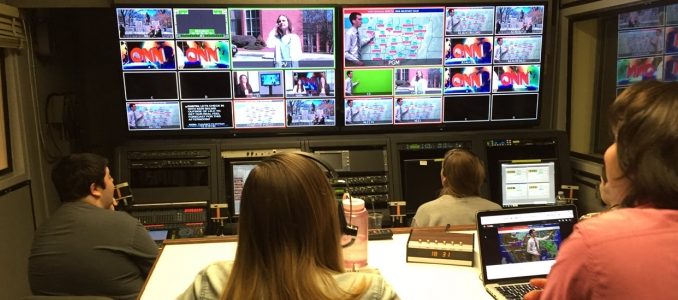
Casey McShea, Staff Writer|
I’ve been arguing that the arts and humanities are just as important as math and science since I was a freshman in high school. My “performance program” was a teacher leaving us to a beat-up keyboard and sheet music—letting us fend for ourselves.
I could rant for hours about the lack of funding for the arts and how phasing arts programs out of our schools is hurting the education of children, but that’s an article for another day. Right now, I want to implore you to think about why the arts and humanities are so underappreciated.
There’s a certain kind of stigma that comes with studying fields not considered “book smart.” Communications, media studies, English—the reactions are all the same. It’s a quick look of confusion and pity, as if you’ve settled for such a field because you don’t really know what you want to do with your life, and this is the best you can do.
I don’t know when science and math became the subjects that defined intelligence, but there is, without a doubt, a stereotype that people who are good at science and math are smarter and more capable than those who are good at English and history, and that’s bullsh—t.
Science, technology , engineering, and math majors are considered the “smart ones;” they’re going to amount to something “real” because they’re studying science or math. There’s a misconception that science and math majors are more demanding than arts and humanities diciplines. STEM majors focus more on numbers, yes, but liberal arts majors put just as much time into their work, whether it be writing papers, shooting video and audio, or drawing. Liberal arts majors require a different comprehension and skill, one that can’t be acquired by memorizing formulas or laws of nature; that’s not to say math isn’t difficult. I’ve always struggled with mathematics, and it is definitely something for which you have to apply yourself. Liberal arts, however, can be just as exacting.
I’m not trying to invalidate science or the challenges it holds. When I was a kid, I wanted to be an astronaut. I’m still mesmerized by outer space and crave to learn more about every inch of the universe when I stare up into the night sky and try to identify constellations and planets. Science has brought us medicine and technology and knowledge. The scientific discoveries made every day are so important and fascinate me and millions of others. Humanities, though? Humanities has brought us things that numbers and formulas can’t—things like social justice, religion, government, philosophy, music, and visual arts. Science may have invented technology, but humanity’s cravings for communication and connection spurred the need for it.
One of the very foundational aspects of our society today is media and communications. Social media, news, literature, television, film—all of that is media. None of that would exist without people like me who are so mesmerized by the way our society has shaped itself around media. One professor at SUNY Oneonta, Karen Stewart, taught me that media is by no means something frivolous to be ignored. Media is power and influence and thought. Media influences our opinions, perspectives, and ideas.
This isn’t about which is better—STEM or liberal arts; that’s an old and tired debate. Science and art coexist beautifully; one cannot exist without the other. Both yearn for discovery—science for reality and logic, arts for emotions and dreams—and exercise the imagination. No, this is about those studiying the arts and humanities feeling as if they are less than adequate.
If you’re a mass communications, communications, English, arts, or any other major who has ever felt that what you’re studying is frivolous or worthless—don’t. If anyone—anyone—ever tries to invalidate the usefulness or the difficulty of your field of study, forget them. Just because your assignments and exams may not include memorizing formulas or numbers, doesn’t mean what you’re doing is unjustified or meaningless. Studying what you’re passionate about, that’s what’s important. If you don’t love what you do, then what’s the point of doing it at all?
Leave a Reply